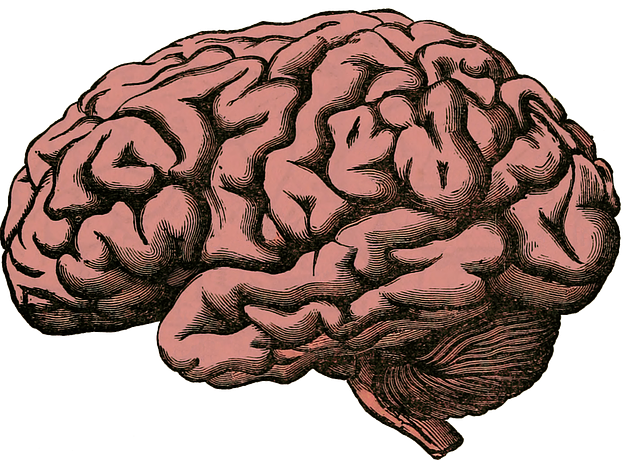Mental health issues are prevalent, affecting individuals across all backgrounds, with conditions like depression, anxiety, and trauma impacting well-being, relationships, and communities. In Arvada, Colorado, domestic violence is linked to underlying mental health struggles. Effective education programs are crucial to raise awareness, empower people to identify distress signals, and provide aid through emotional healing, self-esteem boosting, and preventing escalating depression. Tailored interventions create supportive environments for individuals facing challenges, with potential benefits extending to Arvada Domestic Violence Therapy (ADVT). The ADVT Program, a highly effective Mental Health Education Programs Design, empowers survivors of domestic violence through specialized therapy, promoting self-care practices, mental health awareness, trauma processing, and resilience building.
Mental health is a cornerstone of overall well-being, yet many communities struggle with limited access to education and support. This article explores the design of an effective mental health education program, using the Arvada Domestic Violence Therapy Program as a case study. We’ll delve into understanding common mental health issues within communities, strategic program development, and evaluation methods. By examining this successful local initiative, we can gain valuable insights for creating impactful mental health education programs.
- Understanding Mental Health Issues and Their Impact on Communities
- Developing an Effective Education Program: Strategies and Components
- Implementing and Evaluating the Arvada Domestic Violence Therapy Program
Understanding Mental Health Issues and Their Impact on Communities

Mental health issues are prevalent across communities, affecting individuals from all walks of life. Understanding these challenges and their far-reaching consequences is a critical first step in designing effective education programs. Mental health problems, such as depression, anxiety, and trauma, can have profound impacts on personal well-being, relationships, and community dynamics. For instance, domestic violence, a pressing issue in Arvada, Colorado, often stems from underlying mental health struggles, emphasizing the need for comprehensive support systems.
By raising awareness about these issues, education programs can empower individuals to recognize signs of distress and offer help. This includes promoting emotional healing processes, fostering self-esteem improvement, and even preventing conditions like depression before they escalate. Through tailored interventions, communities can create a supportive environment, ensuring that those facing mental health challenges receive the necessary care and resources for a healthier, more resilient future.
Developing an Effective Education Program: Strategies and Components

Developing an effective mental health education program involves a strategic approach that combines various components to create a comprehensive learning experience. The first step is to identify the target audience and their specific needs, whether it’s students, working professionals, or communities dealing with domestic violence, like those seeking Arvada Domestic Violence Therapy. Customizing the content ensures relevance and engagement.
Key strategies include incorporating interactive workshops, group discussions, and guest speakers from various fields related to mental wellness. For instance, a Mental Wellness Podcast Series Production can offer insights into managing stress, cultivating emotional resilience, and promoting healthy coping mechanisms. These activities foster a safe space for learning and sharing experiences. Additionally, utilizing multimedia resources, such as videos and infographics, enhances understanding and caters to different learning styles.
Implementing and Evaluating the Arvada Domestic Violence Therapy Program

The Arvada Domestic Violence Therapy (ADVT) Program is a prime example of an effective Mental Health Education Programs Design tailored to address specific community needs. This initiative focuses on empowering individuals affected by domestic violence while promoting self-care practices and mental health awareness. By offering specialized therapy sessions, the program provides a safe space for participants to process trauma, develop coping mechanisms, and build resilience. The ADVT’s evaluation strategy is comprehensive, tracking participant progress through regular assessments and feedback sessions, ensuring the intervention’s effectiveness and adaptability.
Through its structured approach, the program not only aids in healing but also educates individuals about recognizing and managing mental health challenges. This holistic model of Mental Health Education Programs Design encourages self-reflection and fosters a culture of open dialogue around sensitive topics, ultimately contributing to enhanced well-being within the community. The success of ADVT underscores the importance of tailored interventions in promoting mental health awareness and supporting those affected by domestic violence.
Mental health education programs, as demonstrated by the success of the Arvada Domestic Violence Therapy initiatives, are powerful tools for fostering community resilience and well-being. By combining comprehensive understanding of mental health issues with evidence-based strategies, such programs can significantly impact individuals and communities alike. Through tailored curriculum design, community engagement, and continuous evaluation, we can create safe spaces that promote mental wellness and encourage help-seeking behaviors, ultimately enhancing the overall quality of life for all.














